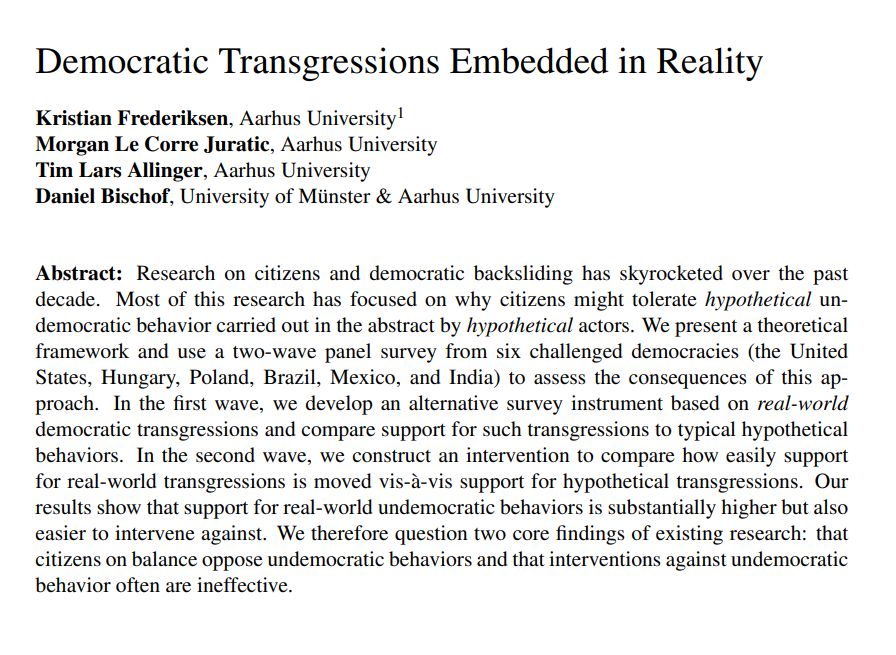Reposted by: Svend‐Erik Skaaning
Reposted by: Svend‐Erik Skaaning
doi.org/10.1080/1351...
Reposted by: Svend‐Erik Skaaning
I show what the title suggests using a large amount of survey experimental evidence. Thread below.
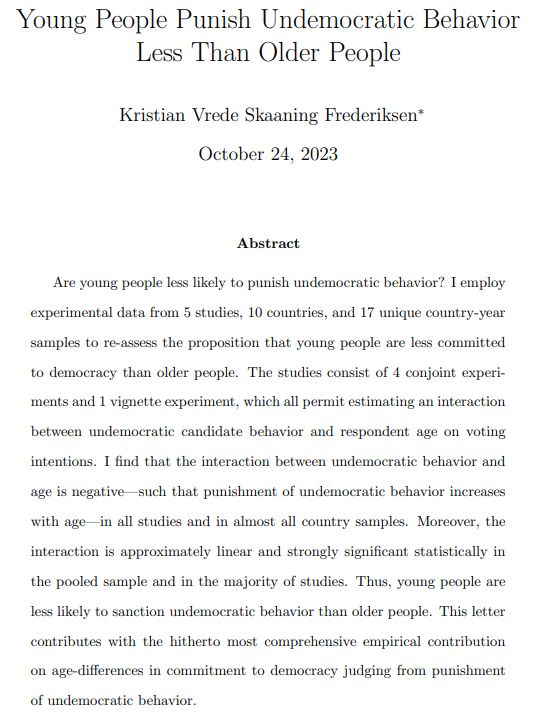
We are hiring 2 postdocs for the new Advertising Democracy project at Aarhus University.
We are looking for researchers who are passionate about advertisements & citizens’ democratic values in Western democracies.
Feel free to share!👇🏾
bss.au.dk/en/about-aar...

Reposted by: Svend‐Erik Skaaning, Stephen A. Meserve
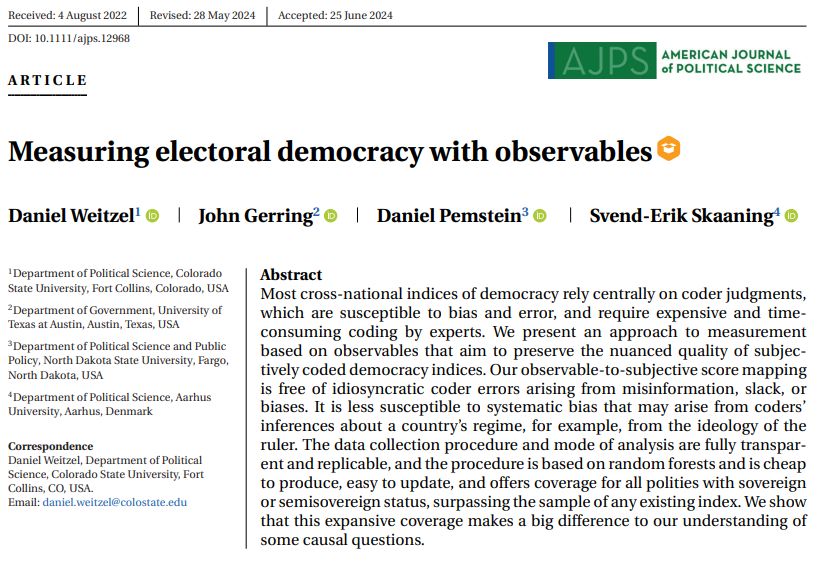
Reposted by: Svend‐Erik Skaaning
At the Virtual Workshop in HPE (VWHPE)—organized jointly with @dkofanov.bsky.social & @tinepaulsen.bsky.social—we discuss state-of-the-art research on a regular basis.
‼️ We have just issued a new call for papers. ‼️
Link & info in post #2.
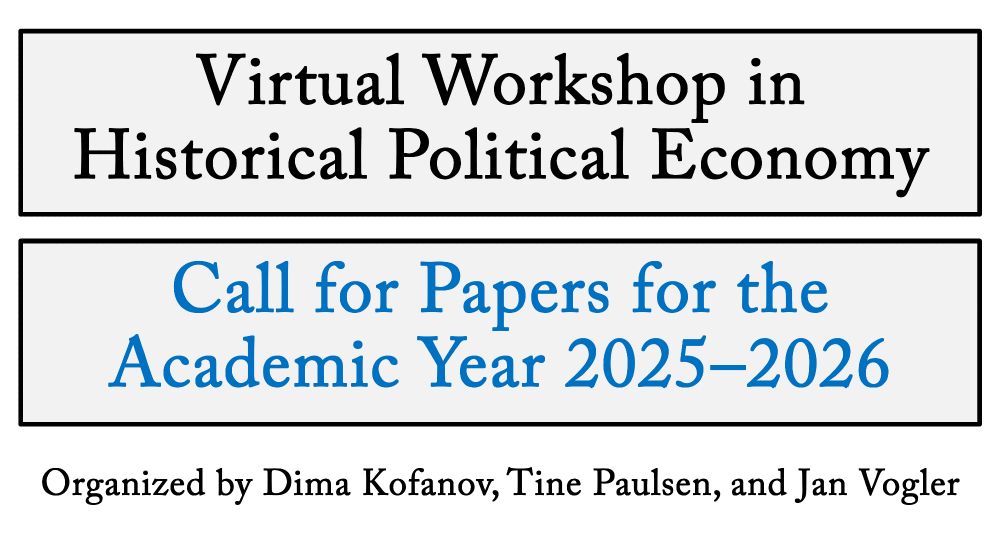
Reposted by: Svend‐Erik Skaaning
Reposted by: Svend‐Erik Skaaning, Carl Henrik Knutsen
@polstudiesassoc.bsky.social @uoypolitics.bsky.social @sagepub.com
Reposted by: Svend‐Erik Skaaning, Carl Henrik Knutsen
@polstudiesassoc.bsky.social @uoypolitics.bsky.social @sagepub.com

Reposted by: Svend‐Erik Skaaning
by Svend‐Erik Skaaning — Reposted by: Carl Henrik Knutsen, Seán Hanley
by Carl Henrik Knutsen — Reposted by: Svend‐Erik Skaaning, Carl Henrik Knutsen
Yet, in an article just published in @polstudies.bsky.social , David Andersen, @skaaning.bsky.social and I highlight important nuances to this general relationship.
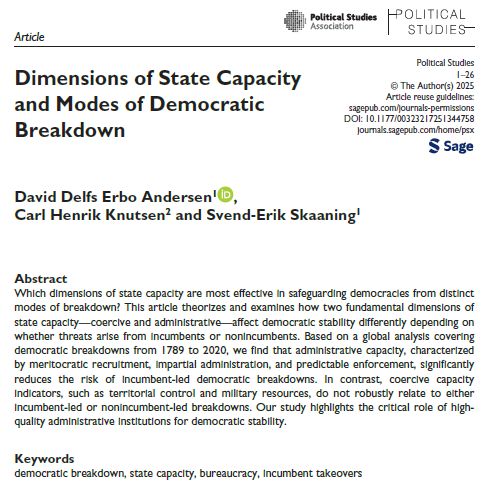
by Svend‐Erik Skaaning — Reposted by: Carl Henrik Knutsen
unipress.dk/udgiv.../d/d...
Reposted by: Svend‐Erik Skaaning
by Roman Senninger — Reposted by: Svend‐Erik Skaaning, Jon Pierre, Ruth Dassonneville , and 10 more Svend‐Erik Skaaning, Jon Pierre, Ruth Dassonneville, Carl Henrik Knutsen, Hugo Mercier, Stefan Müller, Robert Huber, Susan Hyde, Markus Wagner, Sylvain Laurens, Sanne Kruikemeier, Bjørn Høyland, Enzo Nussio
Aarhus University’s Department of Political Science is hiring:
🔹 Assistant Professor
🗓 Deadline: 25 August
🔗 international.au.dk/about/profil...
🔹 Associate Professor
🗓 Deadline: 8 September
🔗 international.au.dk/about/profil...
by Branko Milanovic — Reposted by: Svend‐Erik Skaaning
I thought this would be an opportunity to create a syllabus with many essential contributions to this growing field.
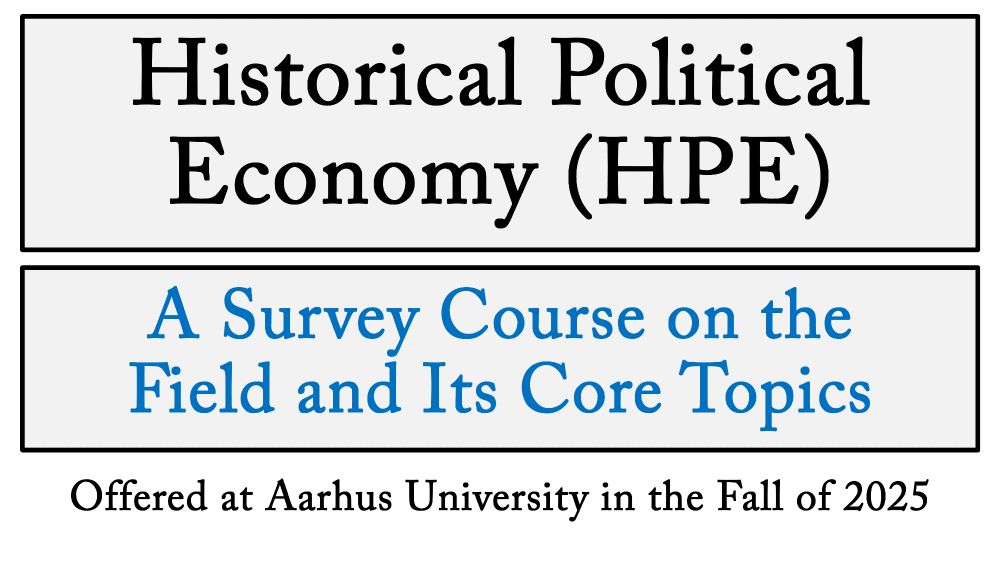
Reposted by: Svend‐Erik Skaaning
Reposted by: Svend‐Erik Skaaning, Robert Huber, Anna Kern
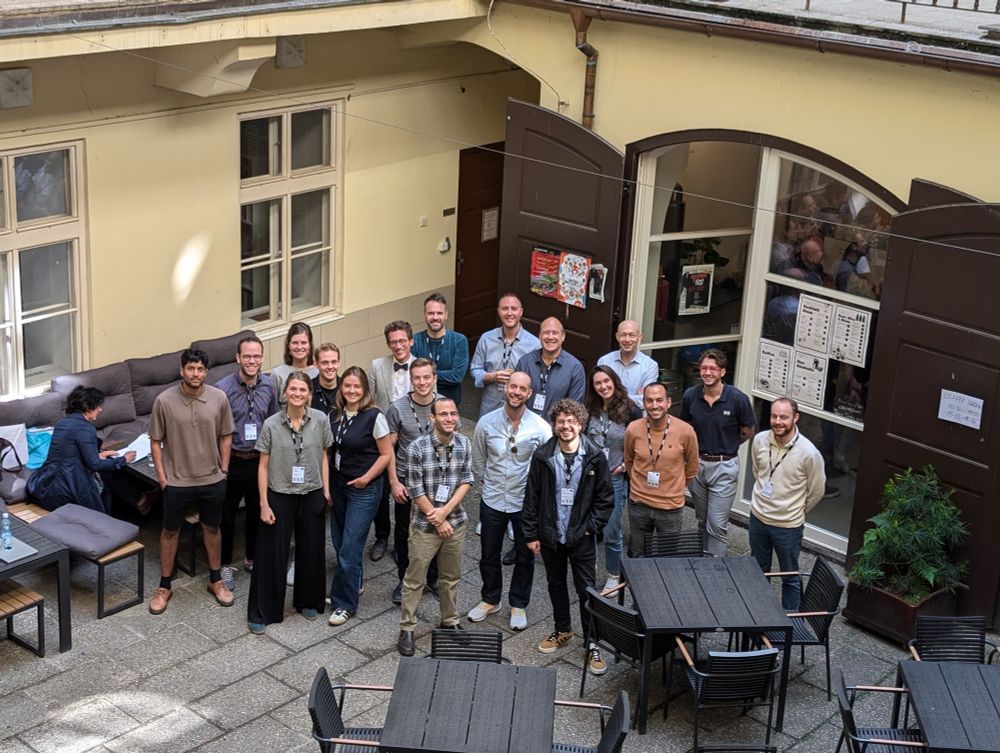
We ran an experiment in 🇩🇪 testing how people react to farmers vs. climate activists blocking roads.
What we find is disturbing:
osf.io/preprints/os...
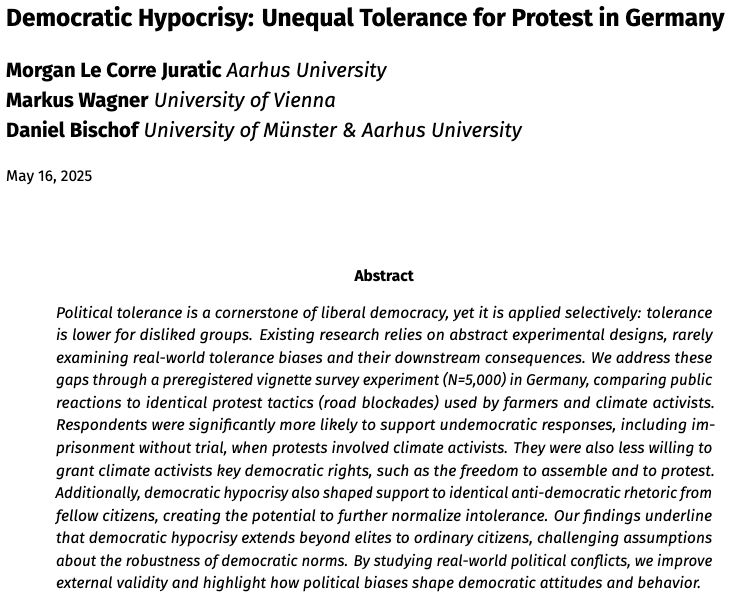

by Svend‐Erik Skaaning — Reposted by: Carl Henrik Knutsen, Marc Badia‐Miró

Against the surge of conjoints and other hypothetical experiments in relation to democratic backsliding, we study the consequences of using hypotheticals versus real-world scenarios.
osf.io/preprints/os...
